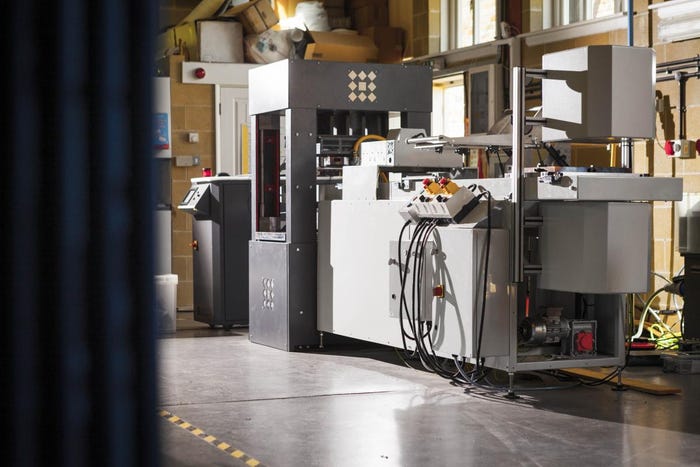As lightweight construction—and the use of lightweight composite materials—continues to grow across industries, finding faster and more efficient ways to produce these materials has become a major goal of the composite industry. Attempting to fulfill that goal, an initiative known as the Composites Innovation Cluster has been established in the UK, which is primarily aimed at developing new, high-volume composite manufacturing capability within the UK—and not without success.
December 4, 2015
As lightweight construction—and the use of lightweight composite materials—continues to grow across industries, finding faster and more efficient ways to produce these materials has become a major goal of the composite industry. Attempting to fulfill that goal, an initiative known as the Composites Innovation Cluster has been established in the UK, which is primarily aimed at developing new, high-volume composite manufacturing capability within the UK—and not without success. Within the scope of Thermocomp, one of the projects launched by the Composites Innovation Cluster, a collaboration between Surface Generation, an advanced materials company based in the Midlands, United Kingdom, WMG, an academic department of the University of Warwick and composites producer AGC AeroComposites, is yielding new press-forming technology for the fast and efficient production of thermoplastic composite components for automotive and aerospace manufacturers.
Within the scope of Thermocomp, one of the projects launched by the Composites Innovation Cluster, a collaboration between Surface Generation, an advanced materials company based in the Midlands, United Kingdom, WMG, an academic department of the University of Warwick and composites producer AGC AeroComposites, is yielding new press-forming technology for the fast and efficient production of thermoplastic composite components for automotive and aerospace manufacturers.
As Geraint Williams, Project Manager at WMG, explained: “A major barrier to mainstream adoption of novel, aligned fiber-reinforced thermoplastics within the automotive sector is the difficulty of economically achieving short cycle times within a high volume production environment.”
Technology developed by Surface Generation offers a way to overcome this problem. This company had previously developed and patented a process called ‘Production to Functional Specifications’ (PtFS), which is used to combine, compact, process and meld plastic, glass and composite materials far more efficiently and with much greater precision than can be achieved with traditional injection and compression molding processes.
“PtFS provides automotive and aerospace manufacturers with a new level of sophistication in compression molding,” added Ben Halford, Chief Executive at Surface Generation.
The three partners are seeking to incorporate Surface Generation’s PtFS technology into new press-forming mold faces for the production of high-performance thermoplastic composite components.
“Aerospace manufacturers recognize that every gram counts when it comes to building lighter, more fuel-efficient aircraft, but traditional press forming processes are not economically viable for producing even medium volume complex shaped parts,” Dave Conway, Materials Technology Director at AGC AeroComposites clarified.
By integrating Surface Generation’s active thermal management technologies into the mold face itself, the heating and cooling levels can be continuously adapted for each mold area and process stage in real-time, which, say the project partners, will hopefully improve both the quality and throughput of compression molding applications—“Eliminating process stages and enabling manufacturers to rapidly form composite components using a one-shot stamp-forming process,” said Graint.
The ability to dynamically control the heat applied to each mold area throughout the cure cycle means manufacturers can quickly and cost-effectively upgrade existing production lines for thermoplastic composites and significantly reduce their cost of production.
“As part of an integrated production line, PtFS makes it possible for manufacturers to achieve one minute Takt times for thermoplastic components,” said Halford.
“Surface Generation has opened the door to a very exciting new era in aerospace manufacturing,” added Conway.
About the Author(s)
You May Also Like


